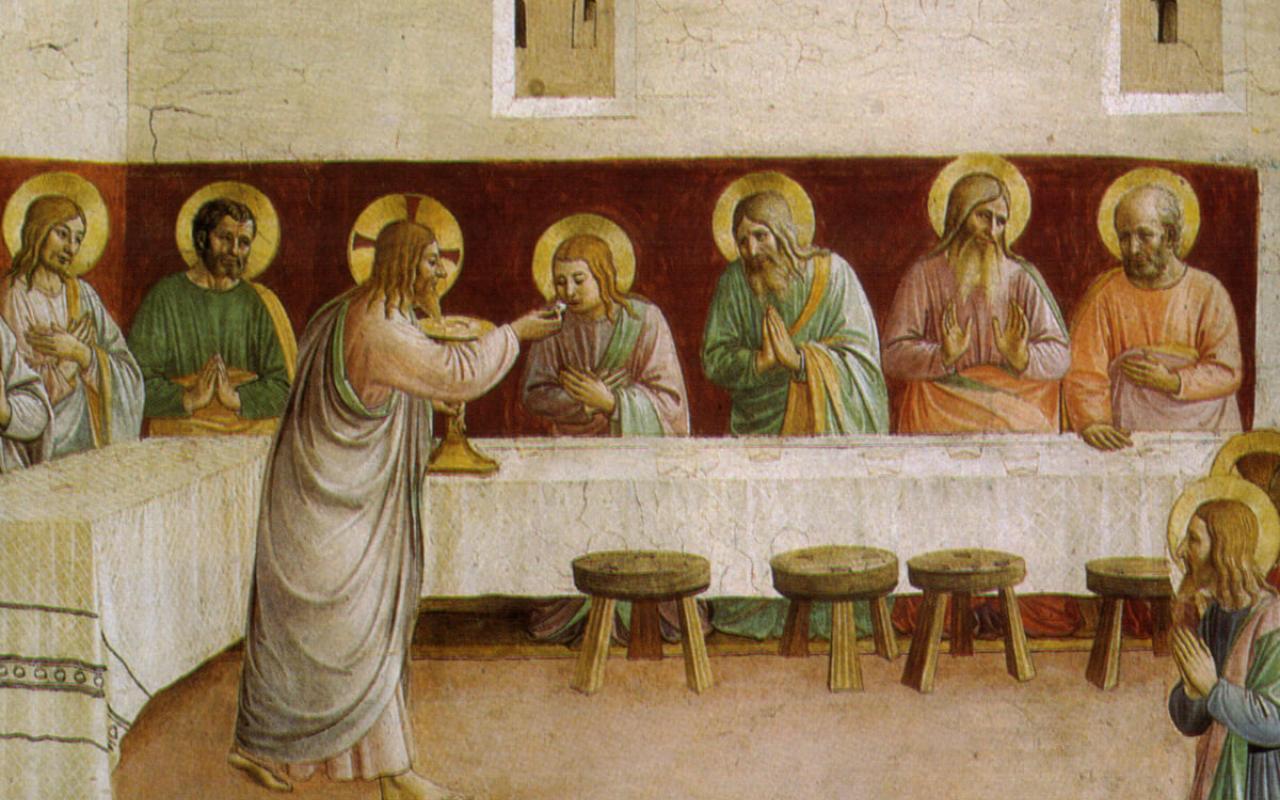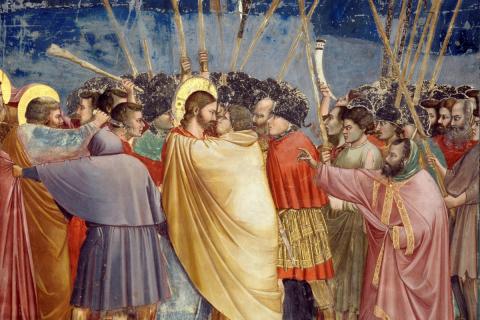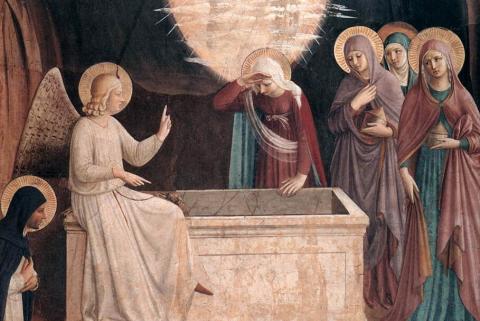
The Church is the hospital that dispenses the medicines and teaches the protocols that can heal and change wounded, fallen humans, preparing us for the presence of the Holy God.
We are no doubt familiar with the heart of God’s message to us, what is sometimes called the ‘kerygma,’ the Gospel proclamation. God created the human race out of love, and his profound desire from the beginning was to live with his children and to joyfully share his life with them. Due to our turning away from him, however, he could no longer dwell with us. Salvation history is the dramatic love story in which God found a way to once again live among his children. The last book of the Bible sums up the story’s point: “I heard a loud voice from the throne saying, ‘Behold, the dwelling of God is with men. He will dwell with them, and they shall be his people, and God himself will be with them; he will wipe away every tear from their eyes, and death shall be no more, neither shall there be mourning nor crying nor pain anymore, for the former things have passed away’” (Revelation 21:3-4).
It should not come as a surprise that this has been called the “Good News” – it is the best news ever heard. But it comes with a catch: if we are going to be able to live with God as he intended, something profound must happen to us first. We need to change, to be ready to be transformed, to go in a completely different direction. When God first gathered the Israelites together and promised to live among them, he constantly repeated this need for transformation: “The LORD said to Moses, ‘Say to all the congregation of the people of Israel, You shall be holy; for I the LORD your God am holy’” (Leviticus 19:2). God is perfect goodness and pure truth, and only what is true and good can live with him.
Imagine a travel agent or a realtor who promised us that there was a wonderful life waiting for us where we would find all our needs met and experience all kinds of things we never had before. It would all sound exciting until we learned that our destination, the place of our new home, was to be the surface of the sun. So much for our excitement. Whatever might be the delights of living on the sun, we would not enjoy them: the sun’s light and heat would destroy us as soon as we got close to it. We are not equipped to deal with that kind of energy.
Something like that happens when fallen humans are told that we are meant to live in God’s presence. Among the most persistent images of God in Scripture are as a light that shines in the darkness (1 John 1:5) and as a fire that burns away impurity (Malachi 3:2). The bright glory and potent justice of God will burn away anything that is evil, unjust, or false as the rays of the sun chase away the darkness or as the heat of a fire burns away the metal’s dross. Darkness and light cannot exist together: if a light is shining, the darkness flees away, and hot fire will burn whatever is not proof against its heat. Unless we have been changed at a radical level, unless all that is evil or corrupt in us has been healed or driven out, it would be a frightening and ultimately destructive experience to be brought into the full presence of God. People sometimes make the mistake of thinking that God is being nasty or intolerant when he does not let just anyone into heaven without any conditions, as if heaven would be anything but misery for those whose lives were still infected by darkness!
Strive for peace with all men, and for the holiness without which no one will see the Lord.
This is why God insisted that the Israelites needed to become holy if he were to live among them. It is why the Second Vatican Council so strongly stressed the “universal call to holiness.” The insistence on holiness is an expression of God’s love and mercy toward us. Our Lord is tender-hearted and very quick to forgive the sins of who is anyone willing to be changed. But his loving eye never loses sight of the necessary end goal: “You must be perfect as your heavenly Father is perfect” (Matthew 5:48). Nothing less will allow us to live in God’s presence. Nothing less will bring us our heart’s desire. Here exactly is our dilemma: there is nothing we can do on our own that will bring us to that holiness “without which no one will see the Lord.” We cannot change ourselves to become ready to live with the God who is a “consuming fire” (Hebrews 12:29).
Fortunately for us, God has undertaken to prepare us for the life he intends for us by effecting the change we so desperately need. How does this change take place in us? How do we become holy so that we can abide the presence of a holy God? How does the Divine Physician perform the operation that will allow us to live in his presence? He does so in many ways, but in all of them, God’s preferred mode is to bring wounded humans into contact with himself through his body, the Church. The Church is the hospital that dispenses the medicines and teaches the protocols that will heal us and change us. The Church is the new family, the regenerated human race, a divine community most of whose members are already perfected in the presence of God, among whom we can learn the ways of our true home. The Church baptizes us and brings us to divine life. The Church speaks God’s powerful and healing word in the Scriptures. The Church feeds us with the medicine of immortality in the Eucharist. The Church touches marriage and makes it a vehicle for divine transformation. The Church draws us into heavenly worship so that we can become accustomed to the brightness of heaven’s light.
“One, holy, catholic, and apostolic.” Those are the words used by the ancient council to describe the Church. The Church is called ‘holy,’ not because of the special holiness of its members, although God’s presence should and does move the Church’s members toward greater holiness. It is called ‘holy’ because the Holy Spirit is its heart and center, and those who come to that source of holiness with faith can find all they need to be transformed into creatures worthy of the dazzling presence of God.

